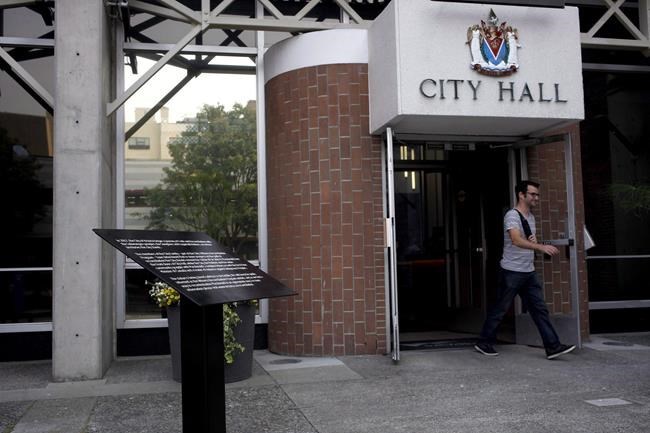VICTORIA — The City of Victoria's plan to cancel its Canada Day broadcast has been welcomed by a group representing First Nations in Saskatchewan as helping recognize the pain Indigenous Peoples are feeling.
City council voted to scrap the virtual Canada Day celebration following the discovery of what are believed to be the remains of 215 students buried on the site of the former Kamloops Indian Residential School. The Tk'emlups te Secwepemc First Nation announced last month that ground-penetrating radar had located what are thought to be unmarked graves.
The news has sparked national outrage and prompted calls for the federal government and the Roman Catholic Church to investigate more potential school burial sites.
David Pratt, vice-chief of the Federation of Sovereign Indigenous Nations, welcomed the decision from Victoria, saying it would be a "really good idea" to cancel Canada Day celebrations. The federation represents 74 First Nations in Saskatchewan.
"We're collectively mourning right now and in grief, and a lot of old wounds have been dug up and reopened because of this."
A number of Indigenous communities have released statements saying they won't celebrate Canada Day, he said.
"It will, in fact, be a day of mourning for their community," Pratt said.
The city said in a statement that the celebration will be replaced by a broadcast to air in the summer guided by the Lekwungen people and featuring local artists. It will look at what it means to be Canadian.
Mayor Lisa Helps said the council will take time to "explore new possibilities."
"While everyone will mark Canada Day in their own way on July 1, now is a time where the city can take leadership and provide an opportunity for thoughtful reflection and examination of what it means to be Canadian in light of recent events and what we already know from our past," she said.
Coun. Marianne Alto, who co-authored the motion to cancel the broadcast, said the decision came after she witnessed a traditional ceremony by the Esquimalt and Songhees Nations marking the finding of the remains.
The online broadcast was scheduled to have presentations by the First Nations, but they said they felt uncomfortable doing it this year because they are in mourning, she said.
Watching the ceremony, she said, brought home how devastating this discovery has been.
"And it really, to be perfectly honest, by the end of the day we really just understood that this was the wrong moment in time to be celebrating," Alto said in an interview.
Canada Day means something completely different to every person and there needs to be a way to honour each of those individual experiences, she said.
The council is working with Indigenous and other groups to make Canada Day celebrations more inclusive for the coming years.
"The council's decision simply not to proceed with its July 1 video play, I think, is important because it's a symbol of our understanding of the need to provide the space for the nations to reflect and mourn and heal, and we will continue the conversations that we have with them about what to do next,” Alto said.
“Sometimes out of tragedy comes an opportunity for change."
But British Columbia Premier John Horgan said he does not support the call to cancel online celebrations on July 1, saying people were looking at that day to put COVID-19 behind them and starting the summer.
"When it comes to the issues with respect to rights and title with respect to reconciliation, I think all British Columbians stand together to mourn the issues that have emerged from Kamloops," Horgan told a news conference.
"I know on the 21st of June, National Indigenous Peoples Day, would be a more appropriate time for us to collectively focus on how we can redress the wrongs of the past and build a brighter future together."
Nelson Wiseman, a political science professor at the University of Toronto, said Canada Day is celebrated in different ways across the country.
"People can make with Canada Day whatever they want," he said in an interview.
"I don't think you can build Canada Day around one theme."
People have varying perceptions of what Canada Day is all about, Wiseman said. The day could be about the country's Indigenous roots; the English, French or multicultural character of the country; or its openness, he said.
"It's different for different people every day of the year, not just on Canada Day."
— By Hina Alam in Vancouver. With files from Julia Peterson in Saskatchewan.
This report by The Canadian Press was first published June 11, 2021.
The Canadian Press



